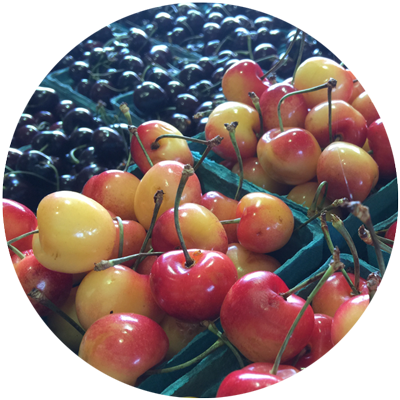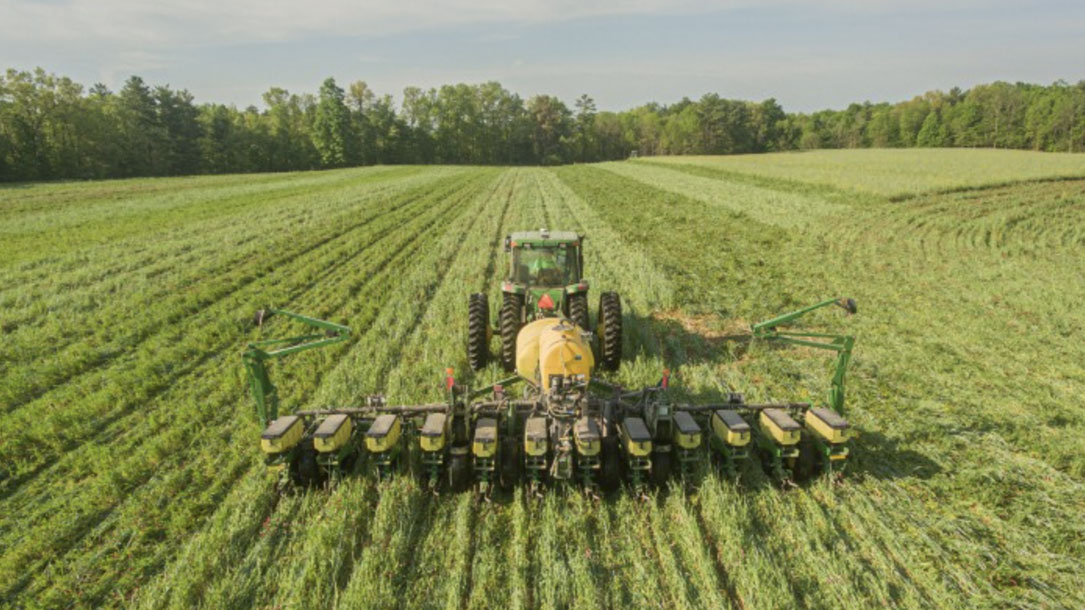
How ‘planting green’ helps farmers gain advantage in the growing season
Typical cover crop management has a host of benefits. Cover crops can increase soil organic matter, slow erosion, enhance water availability, suppress weeds, help control pests and diseases, and increase soil microbial activity. These benefits can improve crop resilience to extreme weather events while minimizing off-farm losses to the environment…
Farmers planting green (a collaborative demonstration project) requires knowledge of how different factors interact, including: climate, cover crop and cash crop species, planting rate and timing, and termination timing…
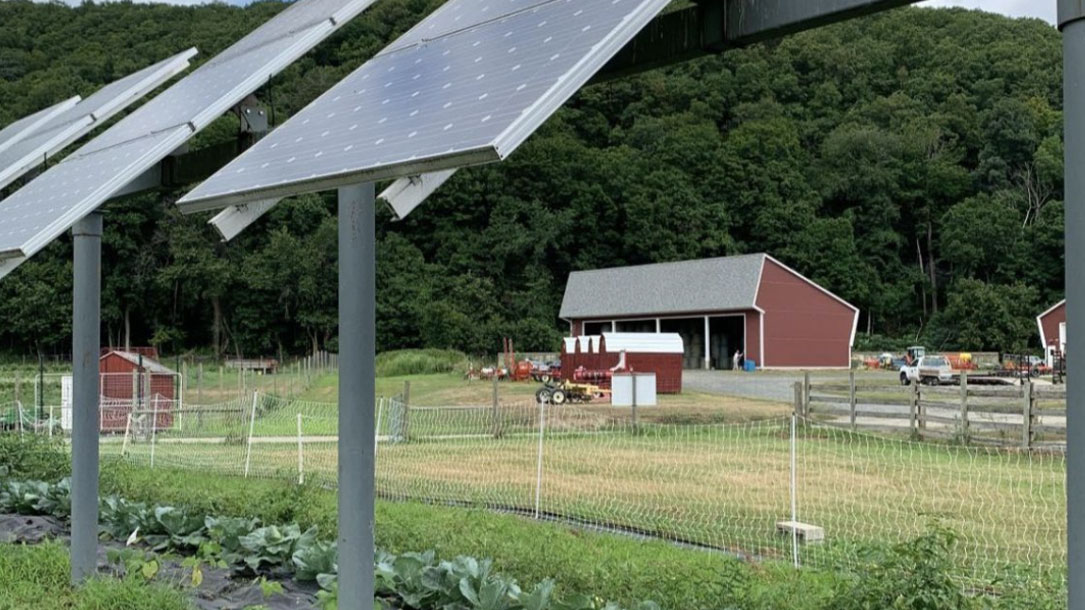
Farmland preservationists, solar developers to build green energy arrays
An estimated 750,000 acres of farmland in the U.S. is lost each year and “solar development if done right could potentially help” save some of that farmland, said John Piotti, president and CEO of American Farmland Trust, a nonprofit organization that works to keep farmland in production.
Earlier this week, Piotti said during a webcast meeting that his group would work with two private firms, Edelen Renewables and Arcadia Solar to develop “agrivoltaic” community solar farms in a number of states including New York…

Passage of historic Inflation Reduction Act bill supports land trust work
The Inflation Reduction Act is landmark climate legislation that has the potential to reduce U.S. emissions by 40% by 2030, helping to reduce carbon in our atmosphere and buffering human and natural communities from the worst effects of climate change.
The IRA will fund critical Farm Bill conservation programs: land trusts and the landowners they work with will have access to an additional $1.4 billion for the Agricultural Conservation Easement Program to be allocated across four years, and the Regional Conservation Partnership Program will be increased by $4.95 billion during that period.
The Conservation Stewardship Program ($3.25 billion) and Environmental Quality Incentives Program ($8.45 billion) will also receive huge investments, and there is $1 billion in technical assistance for landowners who use these programs to reduce climate-related emissions…
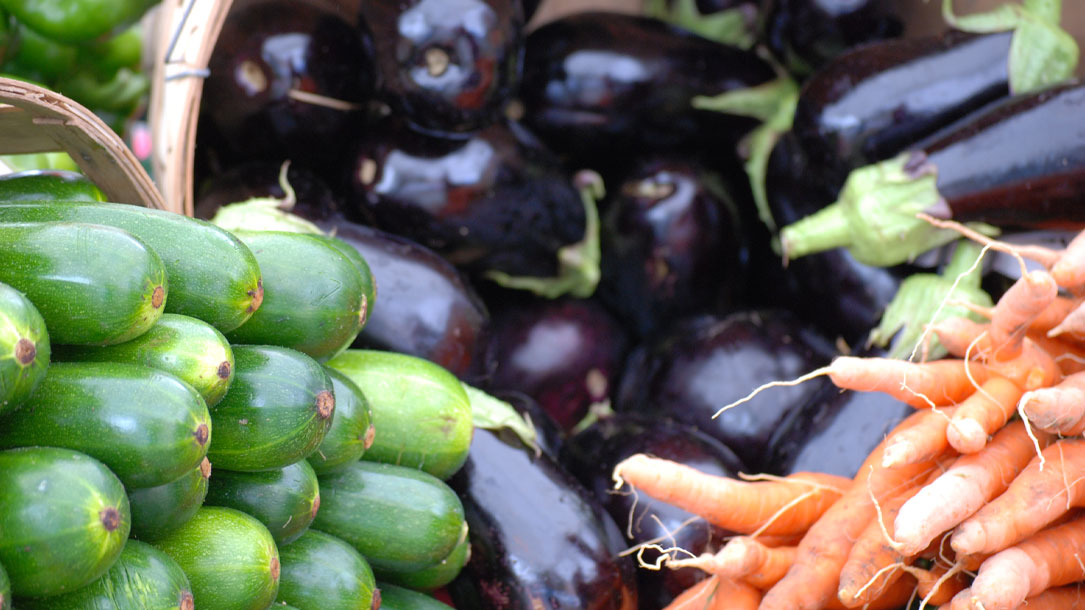
Land conservation combatting climate change
Agricultural Stewardship Association is working to position farmers and farmland as part of the climate solution. Here’s an excerpt from their website:
ASA is dedicated to helping mitigate climate change. Here’s how:
- We are helping farm families permanently protect the most valuable and resilient land for farming and growing food.
- We are educating our community about the importance of keeping land in farming and the connection with increasing resilience to a changing climate.
- We are partnering with other organizations to help farmers adopt soil health practices and generate renewable energy in ways that are compatible with agriculture and keep productive land in farming…
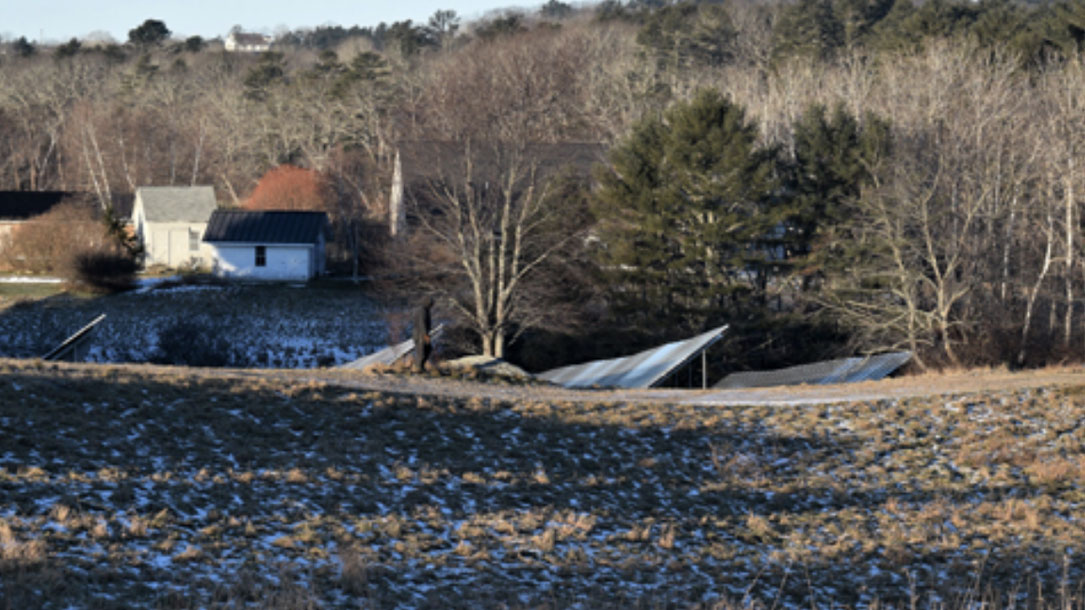
Coastal Rivers takes leap towards carbon neutrality with solar array
For those who braved mud or ice to stroll the slopes at Round Top Farm this winter, they may have spotted something shiny and new in the southwest field behind Darrows Barn.
As of Jan. 3, contractors with ReVision Energy completely installed eight rows of solar panels on a one-acre parcel at the farm and are in the process of finishing the wiring on the array. ReVision broke ground on the project in the fall.
Hannah McGhee, Coastal Rivers outreach and communications manager, said the location for the panels was selected for the minimal impact it would have on the visual landscape at Round Top for the public and abutters.
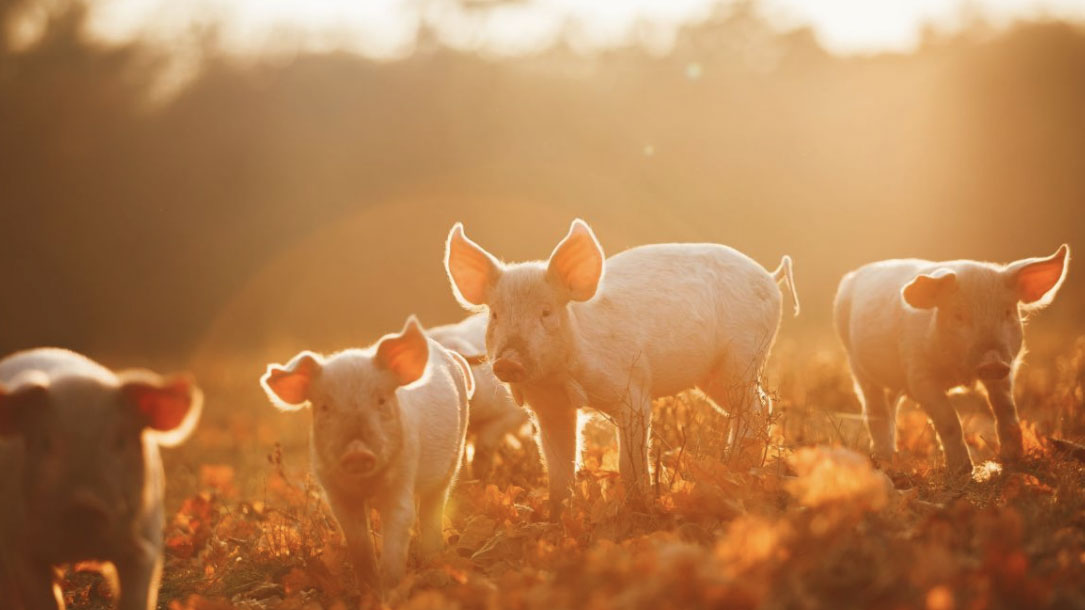
Farming collaborative plan looks to keep land accessible, open
Under the land collaborative model, the property will not solely be devoted to agriculture; Sanford-Long’s animals will share land with a planned solar array…
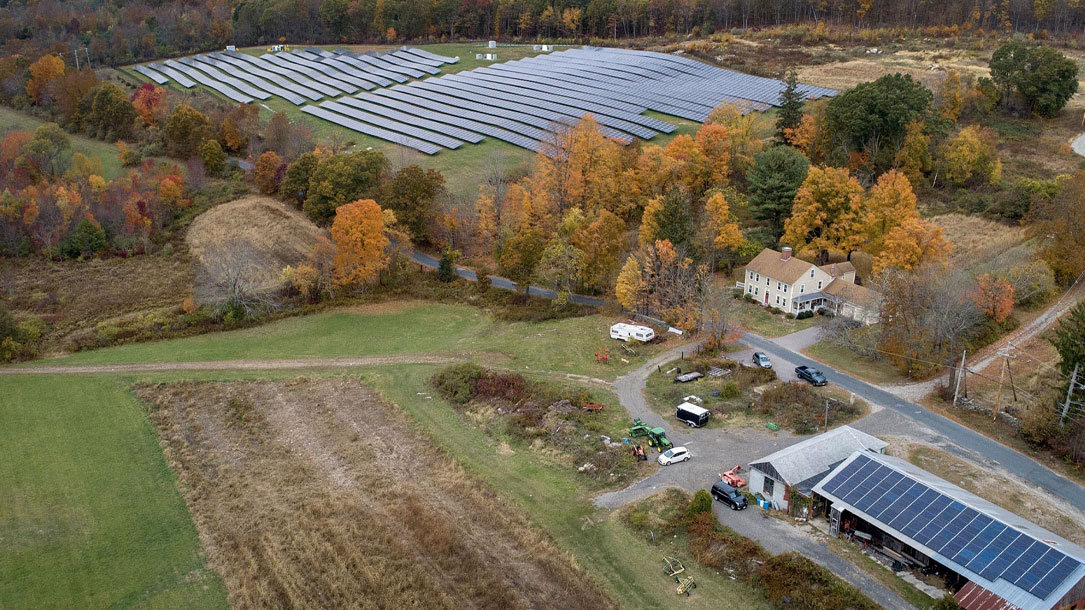
Farms will harvest food and the sun, as Mass. pioneers ‘dual-use’ solar
Paul Knowlton owns 300 acres of land in Grafton, and farms about 50. The farm has been in his family for five generation, ever since Knowlton’s great-great-grandfather settled in the Blackstone Valley in 1872.
These days Knowlton grows pumpkins, squash and corn. Up a gravel road, past the family cemetery, corn stalks are still standing from this year’s crop. “Considering the drought situation, we did fair,” Knowlton says.
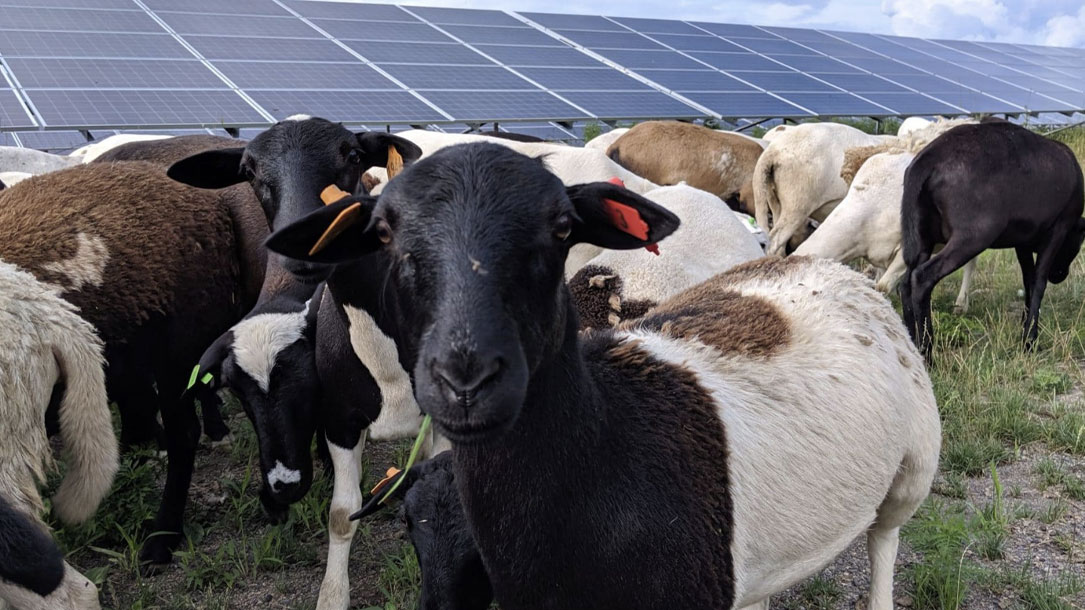
Solar meets sheep (and bees, and more)
Often solar panels sit on former agricultural land, but aren’t what we’d otherwise think of as a farm.
Agrivoltaics aims to change that by hosting PV panels and agriculture on the exact same land. Often, livestock like sheep graze under the solar panels. Sometimes the projects include pollinator habitat as well, which can benefit biodiversity, honey production, or adjacent pollinator-dependent crops. And trials are being done growing shaded crops under raised panels, too…
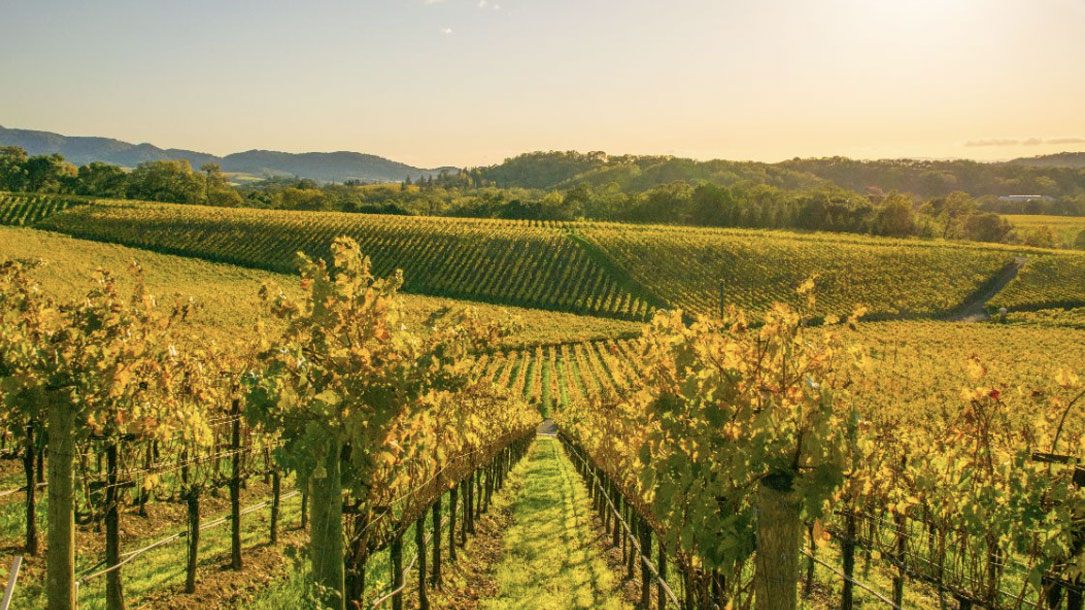
California conservation to address climate change
[In 2021] the Trust for Public Land and JPMorgan Chase announced a $500,000 collaboration to launch The Trust for Public Land’s new California Climate Conservation program, and protect natural and working lands, mitigating climate impacts for people in the Central Coast and Los Angeles County. The program will incorporate California’s climate action strategy and help achieve greater community resilience through nature-based solutions and by engaging with local communities…
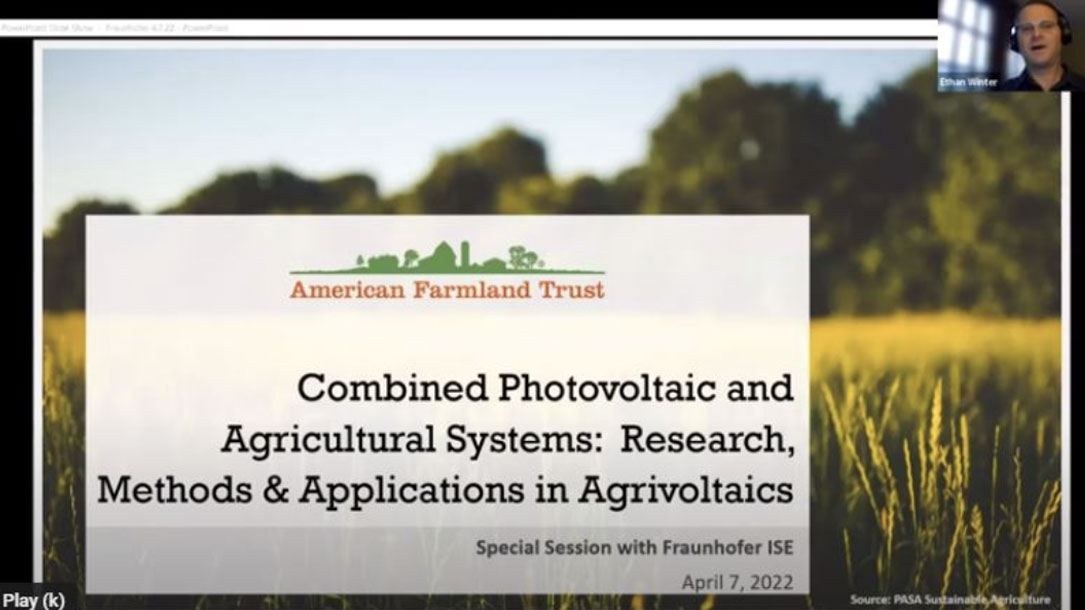
Solar that supports farmers, soils, water
While states and communities around the U.S. are ramping up renewable energy commitments and incentivizing solar development, many farms are struggling. There is also growing concern that solar development could displace active agricultural use on productive farmland, with impacts to farm renters, local economies, and regional food systems. Without an integrated approach, achieving clean energy goals may come at the loss of some of our most fertile and economically viable farmland to solar development.
American Farmland Trust seeks a more collaborative and sustainable path forward towards a clean energy transition that supports healthy soils, wholesome food, and vibrant farms…



